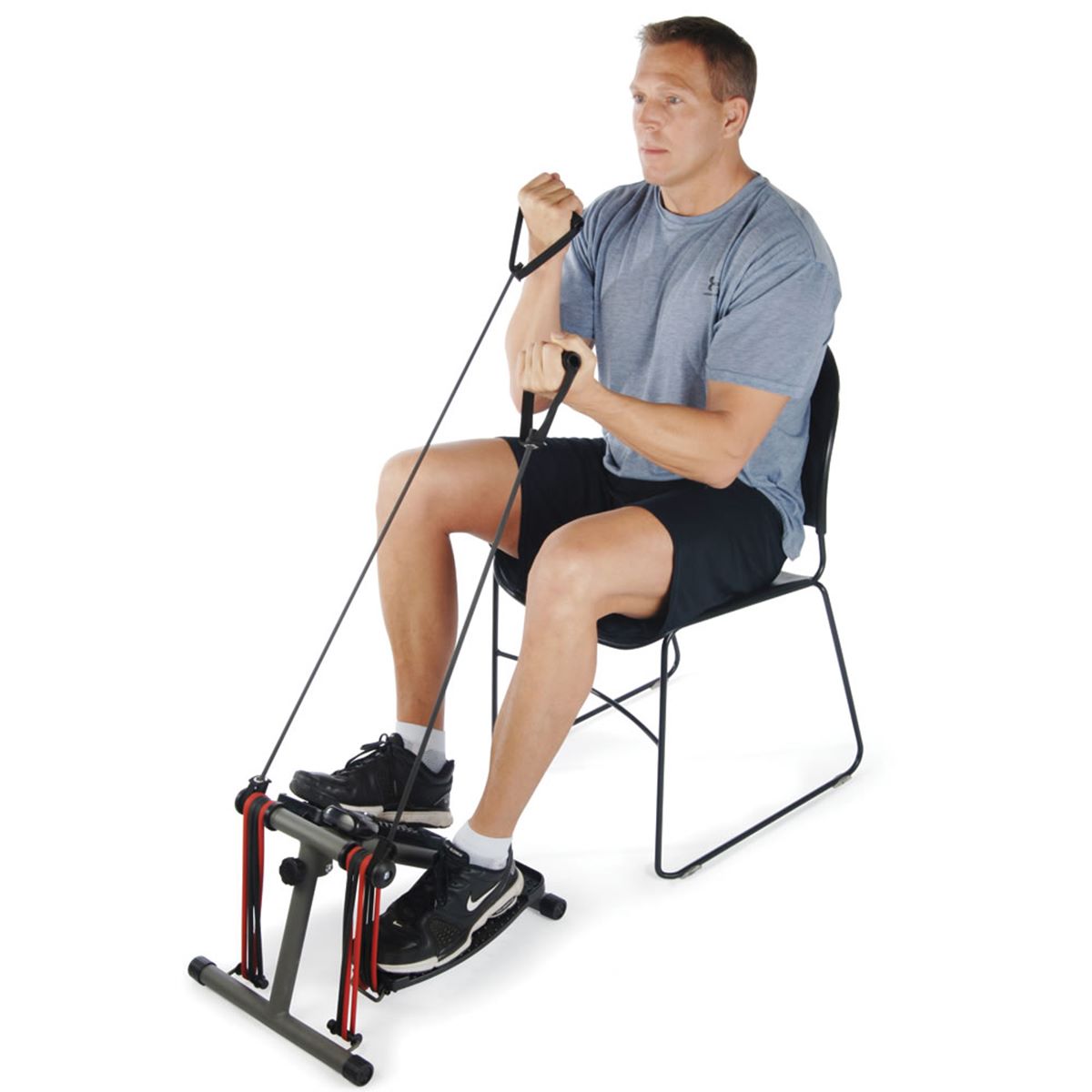

Featured
How Long Should I Workout To Lose Weight
Modified: January 2, 2024
Discover how long you should workout to lose weight with our featured guide. Get expert tips and advice to maximize your weight loss efforts.
Introduction
Welcome to the world of fitness and weight loss! If you’re reading this article, chances are you have a goal to shed some pounds and improve your overall health. Congratulations on taking that first step!
Losing weight can be a challenging journey, but with the right approach and dedication, you can achieve your desired results. One crucial aspect of weight loss is exercise, and finding the right workout duration is key to maximizing your efforts.
In this article, we’ll explore the optimal workout duration for weight loss, taking into consideration various factors such as individual goals, fitness levels, and overall health. We’ll provide helpful guidelines to ensure your workouts are effective and tailored to your needs.
It’s important to note that exercise alone may not guarantee weight loss. Lifestyle changes such as adopting a balanced diet, managing stress levels, and getting enough rest are equally important components of a successful weight loss journey. However, exercise plays a vital role in burning calories, building strength and endurance, and boosting overall well-being.
So, let’s dive in and uncover the mystery behind the optimal workout duration for weight loss!
Understanding Weight Loss
Before delving into the specifics of workout duration, it’s essential to understand the fundamentals of weight loss. When it comes to shedding those extra pounds, it all boils down to achieving a calorie deficit.
A calorie deficit occurs when you consume fewer calories than your body burns. This imbalance forces your body to tap into its stored fat reserves for energy, ultimately leading to weight loss. It’s important to note that a healthy and sustainable rate of weight loss is generally around 1-2 pounds per week.
To achieve a calorie deficit, you can either reduce your calorie intake through mindful eating or increase calorie expenditure through physical activity. In most cases, a combination of both approaches yields the best results.
Weight loss is a complex process affected by various factors such as genetics, metabolism, body composition, and hormonal balance. It’s not simply about losing weight but also about maintaining muscle mass, improving cardiovascular health, and enhancing overall well-being.
Incorporating exercise into your weight loss journey offers a plethora of benefits beyond just burning calories. Regular exercise boosts your metabolism, increases lean muscle mass, improves mood, enhances energy levels, and reduces the risk of chronic diseases.
Now that we have a basic understanding of weight loss, let’s explore the role of exercise in achieving your goals.
Factors Affecting Weight Loss
When it comes to weight loss, it’s essential to consider the various factors that can influence your progress. While exercise is a key component, several other elements play a role in determining the effectiveness of your weight loss efforts.
1. Diet: It’s often said, “You can’t out-exercise a bad diet.” What you fuel your body with has a significant impact on weight loss. A diet high in processed foods, sugary drinks, and excess calories can hinder your progress, regardless of how much you exercise. Focus on consuming nutrient-dense, whole foods that support your weight loss goals.
2. Individual metabolism: Each person’s metabolism is unique. Some individuals naturally have a fast metabolism, allowing them to burn calories more efficiently. Conversely, others may have a slower metabolism, requiring them to exert additional effort to achieve weight loss. While you can’t change your metabolism completely, regular exercise can help improve it over time.
3. Hormonal factors: Hormones play a crucial role in weight regulation. imbalances in hormones such as insulin, cortisol, and thyroid hormones can affect your ability to lose weight. Consulting a healthcare professional to address any underlying hormonal issues is important for successful weight loss.
4. Sleep quality and stress levels: Lack of sleep and chronic stress can impede weight loss progress. Poor sleep disrupts hormone regulation related to appetite control, while high-stress levels can lead to emotional eating and overeating. Prioritizing quality sleep and implementing stress management techniques like exercise, meditation, or yoga can support your weight loss journey.
5. Genetic factors: Genetic predispositions can influence how your body stores and processes fat. While you can’t change your genetics, you can still make progress with weight loss through exercise and a healthy lifestyle. Focus on what you can control and work with the body you have.
By considering these factors and making necessary adjustments, you can optimize your weight loss efforts and increase your likelihood of achieving sustainable and lasting results. Next, let’s explore the importance of exercise in the weight loss process.
Importance of Exercise in Weight Loss
Exercise plays a pivotal role in the weight loss journey. It not only helps create a calorie deficit but also provides numerous other benefits that contribute to overall health and well-being.
1. Calorie expenditure: Exercise helps burn calories, which can contribute to achieving a calorie deficit necessary for weight loss. The more intense the exercise, the more calories you burn. Combining cardiovascular exercises like running, cycling, or swimming with strength training to build muscle can maximize calorie burn even after your workout.
2. Muscle preservation: When you lose weight, you want to minimize muscle loss and focus on losing fat. Exercise, particularly resistance training, helps preserve and even build muscle mass while losing weight. This is crucial because muscle burns more calories at rest than fat, which means that the more muscle you have, the higher your metabolism is.
3. Metabolic boost: Regular exercise increases your metabolism, allowing your body to burn calories more efficiently even outside of your workouts. This is especially true for high-intensity workouts like HIIT (High-Intensity Interval Training), which can have a prolonged effect on your metabolic rate even after you’ve finished exercising.
4. Appetite regulation: Exercise helps regulate appetite and control cravings. It can reduce levels of hunger hormones like ghrelin while increasing levels of hormones that promote feelings of fullness, such as peptide YY and glucagon-like peptide-1. This can make it easier to stick to a healthy eating plan and avoid overeating.
5. Improved mood and energy: Exercise has a profound impact on mental health. It stimulates the release of endorphins, which are known as “feel-good” hormones, leading to improved mood and reduced stress levels. Additionally, regular physical activity enhances energy levels, allowing you to engage in daily activities with increased vitality.
6. Enhanced cardiovascular health: Exercise plays a crucial role in improving cardiovascular health. It strengthens the heart, lowers blood pressure, improves blood flow, and reduces the risk of heart disease. A healthy heart contributes to overall well-being and longevity.
Incorporating exercise into your weight loss journey is essential for not only shedding pounds but also improving your overall health and quality of life. Now, let’s delve into finding the right workout duration for effective weight loss.
Finding the Right Workout Duration
When it comes to determining the optimal workout duration for weight loss, several factors come into play. It’s essential to strike a balance between allowing enough time for calorie expenditure and avoiding excessive intensity that may lead to burnout or injury.
The American Heart Association recommends at least 150 minutes of moderate-intensity aerobic activity or 75 minutes of vigorous-intensity aerobic activity per week for overall health benefits. However, for weight loss purposes, you may need to aim for a higher duration.
For beginners, starting with shorter workout durations and gradually increasing them can be a sustainable approach. You can begin with 20-30-minute sessions three to four times a week and gradually progress to longer durations as your fitness level improves.
The key is to find a workout duration that challenges you without pushing you to the point of exhaustion. It’s important to listen to your body and give yourself rest days for recovery.
If you prefer higher-intensity workouts like HIIT, which involves short bursts of intense exercise followed by periods of rest, shorter workout durations of 20-30 minutes can be effective. HIIT workouts are known for burning a significant amount of calories in a shorter time frame.
On the other hand, if you prefer lower-intensity exercises like walking or jogging, longer workout durations of 45-60 minutes may be more suitable to achieve calorie expenditure and cardiovascular benefits.
Remember, consistency is key. It’s better to have shorter, more frequent workouts throughout the week than one or two long sessions. Aim for a balance between cardio exercises, strength training, and flexibility exercises for a well-rounded workout routine.
Don’t forget to include warm-up and cool-down periods in your workout routine. These help prepare your body for exercise and promote proper recovery, reducing the risk of injuries.
Ultimately, finding the right workout duration depends on your fitness level, preferences, and overall schedule. It’s essential to choose a duration that you can consistently commit to and enjoy, ensuring long-term adherence to your weight loss journey.
Next, let’s explore some general guidelines for effective workouts to maximize your weight loss efforts.
Guidelines for Effective Workouts
When it comes to weight loss, following some guidelines can help ensure that your workouts are effective and yield the desired results. Consider the following tips to maximize your efforts:
- Vary your workouts: Engage in a variety of exercises to target different muscle groups and prevent boredom. Incorporate activities like cardio, strength training, and flexibility exercises into your routine.
- Progress gradually: Increase the intensity, duration, or frequency of your workouts gradually over time. This helps prevent plateauing and allows your body to adapt to the challenges.
- Pay attention to proper form: Performing exercises with the correct form is vital for preventing injuries and maximizing the benefits. Consider working with a personal trainer or fitness professional to learn proper techniques.
- Include strength training: Strength training not only helps build muscle but also boosts metabolism and aids in weight loss. Incorporate exercises that target major muscle groups at least two times a week.
- Stay hydrated: Drink an adequate amount of water before, during, and after your workouts to stay hydrated and enhance performance.
- Listen to your body: It’s important to understand and respect your body’s limits. If you feel pain or discomfort during an exercise, modify or stop the movement. Push yourself, but know when to give yourself a break to prevent overexertion.
- Rest and recovery: Allow your body time to rest and recover between workouts. This is when your muscles repair and strengthen, leading to better performance and results.
- Set realistic goals: Set achievable short-term and long-term goals to stay motivated and track your progress. Celebrate your milestones along the way to keep yourself motivated.
- Be consistent: Consistency is key when it comes to weight loss. Aim for regular workouts, even if they are shorter in duration, rather than sporadic, longer sessions. Consistency will yield better results over time.
Remember, it’s important to consult with a healthcare professional or certified fitness expert before starting any new exercise program, especially if you have any underlying health conditions or injuries.
Now that you have a better understanding of the guidelines for effective workouts, let’s move on to determining your ideal workout duration.
How to Determine Your Ideal Workout Duration
Everyone’s ideal workout duration will vary depending on factors such as fitness level, goals, time availability, and personal preferences. Here are some steps to help you determine the ideal workout duration for yourself:
- Assess your current fitness level: Evaluate your current fitness level and consider any physical limitations or health concerns that may affect your workouts. This self-assessment will help you determine where you stand and what type of exercise intensity you can handle.
- Set clear goals: Define your weight loss goals and consider how exercise can support those goals. Determine the amount of weight you want to lose and the timeframe you have in mind. This will help guide your workout duration.
- Consider your schedule: Take into account your daily schedule and commitments. Assess how much time you can realistically allocate to exercise each day or week. Be honest with yourself and find a balance that fits your lifestyle.
- Experiment with different durations: Start by incorporating shorter workout durations and gradually increase as you feel comfortable. Pay attention to how your body responds to different durations, energy levels, and recovery time.
- Monitor your progress: Keep track of your weight loss progress, energy levels, and overall well-being as you experiment with different workout durations. Benchmark your results and make adjustments as needed.
- Listen to your body: It’s crucial to listen to your body’s cues and adjust your workout duration accordingly. If you feel fatigued or overwhelmed, it may be a sign to reduce the duration or intensity. On the other hand, if you feel like you could do more, consider increasing the duration gradually.
- Consult with a fitness professional: If you’re unsure about determining the ideal workout duration or need personalized guidance, consider seeking the expertise of a certified fitness professional. They can assess your needs and create a tailored workout plan.
Remember, the ideal workout duration is not a one-size-fits-all approach. It’s a process of trial and error to find what works best for your body and goals. Be patient and give yourself time to figure out what feels right.
Now that you have a better understanding of how to determine your ideal workout duration, let’s discuss some common mistakes to avoid for effective weight loss.
Common Mistakes to Avoid
When it comes to weight loss and finding the right workout duration, it’s important to be aware of common mistakes that can hinder your progress. By avoiding these pitfalls, you can maximize the effectiveness of your workouts and achieve your desired results more efficiently. Here are some common mistakes to steer clear of:
- Overtraining: Exercising for excessively long durations or at high-intensity levels without giving your body enough time to rest and recover can lead to burnout, fatigue, and even injuries. Balance your workouts with adequate rest days to allow your body to heal and rejuvenate.
- Skipping strength training: Focusing solely on cardio exercises and neglecting strength training is a common mistake. Strength training helps build lean muscle mass, which increases your metabolism and contributes to long-term weight loss. Incorporate resistance exercises at least twice a week.
- Relying solely on exercise: While exercise is crucial for weight loss, it’s important to remember that it’s only part of the equation. Neglecting a healthy diet and other lifestyle factors like managing stress and getting enough sleep can hinder your progress. Focus on creating a well-rounded approach to health and weight loss.
- Setting unrealistic expectations: It’s important to set realistic and achievable goals for weight loss. Expecting rapid results or aiming for unrealistic targets can lead to frustration and disappointment, which can derail your motivation. Be patient and focus on sustainable, long-term progress.
- Ignoring proper form and technique: Performing exercises with improper form can lead to injuries and diminish the efficacy of your workouts. Take the time to learn and practice proper technique or seek guidance from a qualified fitness professional to ensure you’re maximizing your efforts.
- Not listening to your body: Pay attention to your body’s signals and adjust your workout duration or intensity accordingly. Pushing through pain or fatigue can lead to overexertion and injury. Give yourself permission to rest and modify your workouts when needed.
- Skipping a warm-up and cool-down: Neglecting proper warm-up and cool-down routines can increase the risk of injury and impair recovery. Take a few minutes to prepare your body before exercise and allow it to cool down gradually afterward. This will help optimize your workouts and minimize discomfort.
- Comparing yourself to others: Remember that everyone’s fitness journey is unique. Comparing your progress to others can be demotivating and lead to self-doubt. Focus on your own goals and celebrate your individual milestones without getting caught up in comparison.
Avoiding these common mistakes will help optimize your workouts, prevent setbacks, and keep you on track toward achieving your weight loss goals. Now, let’s wrap up with a summary of the key points discussed in this article.
Conclusion
Congratulations! You’ve reached the end of this article, and now you have a better understanding of how to determine the ideal workout duration for weight loss. Remember, weight loss is a journey that requires commitment, patience, and a holistic approach.
Understanding the fundamentals of weight loss, the importance of exercise, and the factors that can impact your progress are essential for success. By incorporating exercise into your routine, you can not only burn calories but also improve your overall health, build strength, and boost your metabolism.
When finding the right workout duration, it’s important to consider your fitness level, goals, preferences, and schedule. Gradually increase your workout duration, while also listening to your body and allowing for proper rest and recovery.
Avoid common mistakes such as overtraining, neglecting strength training, setting unrealistic expectations, and not listening to your body. By avoiding these pitfalls, you can ensure that your workouts are effective and sustainable.
Remember, weight loss is not just about exercise; it’s a combination of healthy eating, managing stress, getting enough rest, and maintaining a positive mindset. Consistency, patience, and a realistic mindset are key to achieving and maintaining your weight loss goals.
Now, armed with this knowledge and guidelines, you can take confident steps towards reaching your weight loss aspirations. Embrace the journey, stay motivated, and celebrate your progress along the way. You have the power within you to achieve the healthy and fulfilling life you desire.









